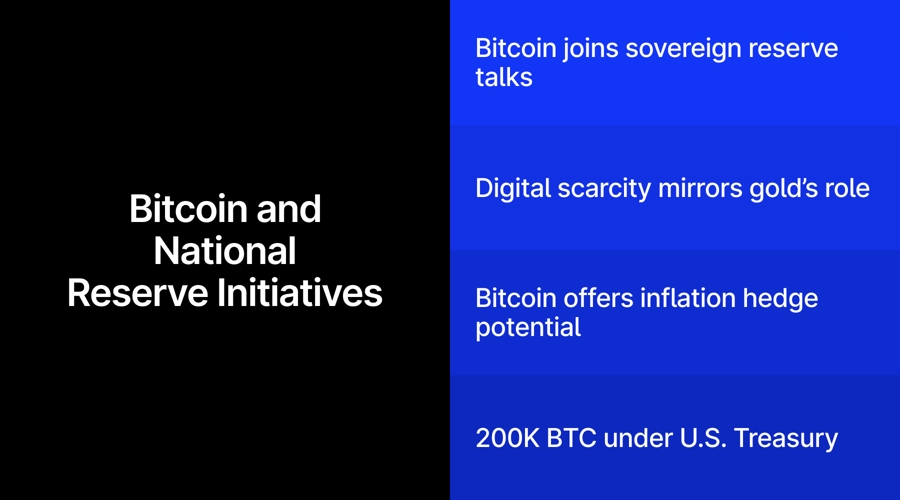Transformations in Global Finance
The landscape of global finance is rapidly evolving. With shifts in monetary systems, rising inflation, and the growth of digital economies, countries worldwide are reassessing their strategic reserves.
Traditional Reserves vs. Bitcoin
Historically, reserve assets primarily consisted of gold, foreign currencies, and sovereign debt instruments—traditional means used by governments for economic stabilization. However, assessments of these portfolios now include a new asset type: Bitcoin.
The Role of Bitcoin
While some may still question the nature and functionality of Bitcoin, it is increasingly recognized as more than just a speculative asset. Central banks and policymakers are discussing its potential to enhance economic resilience and sovereignty. The characteristics of Bitcoin, such as its fixed supply and decentralized nature, are increasingly regarded as beneficial for long-term financial strategies.
The U.S. Strategic Bitcoin Reserve
In March 2025, the U.S. established a Strategic Bitcoin Reserve (SBR) through an executive order during Donald Trump’s administration. This reserve consolidates around 200,000 BTC obtained from legal forfeitures, aiming to serve as a hedge against inflation and a strategic tool akin to historical roles of gold.
Global Perspectives on Bitcoin
The U.S. initiative has attracted attention from other nations, seen as a balanced model of risk management and innovation without using taxpayer funds. Internationally, various countries are exploring Bitcoin’s potential for their own reserves, with Switzerland considering its inclusion in the central bank’s holdings and Poland discussing the creation of a national Bitcoin reserve.
Why Consider Bitcoin?
Bitcoin stands out as the primary digital asset for national reserves. It features a fixed supply, operates decentralization, and maintains neutrality, free from geopolitical influences. Its maturity in market trading bolsters its viability as a sovereign-grade asset, parallel to gold.
The Future of Economic Strategy
While discussions on national Bitcoin reserves are still developing, small allocations (1% to 3% of total reserves) are suggested to offer significant advantages like inflation hedging and enhanced diversified currency strategies. As the financial landscape evolves, countries—big or small—may find strategic value in adopting digital assets, urging nations to engage in discussions surrounding Bitcoin.



